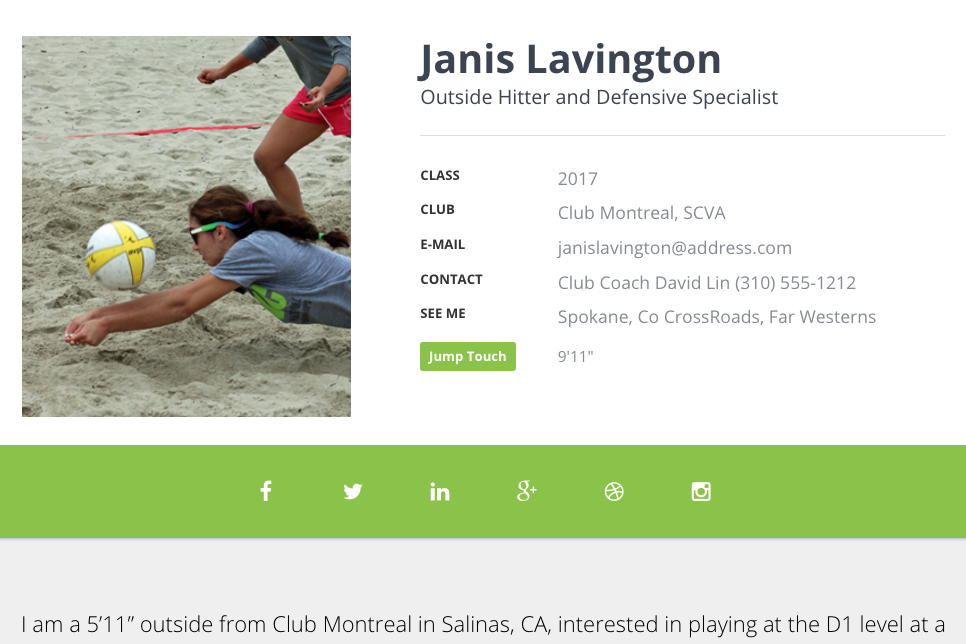Trends in College Recruiting . . . (Don't Like to Read? Watch This in Video)
A trend began in early 2007 when Shannon Terry who now runs 247Sports sold rivals.com to Yahoo for $100 million. Fast-forward to 2014, when, after the Raine Group acquired beRecruited for approximately $20 million, private equity firms started taking notice of just how much money there is to be made in college sports recruiting. As a result, I predict that what we will see in 2016 - 2018 is a roll-up attempt marked by a series of acquisitions by PE firms to build one giant monopoly of online recruiting tools, as well as several new entrants to the online college recruiting market, with fresh new interfaces to lure athletes and their parents.
What does this mean for kids who use college recruiting services like beRecruited, NCSA, etc.?
- One only has to think of the service they get from their local phone or utility companies when they hear the word, “monopoly”.
I started AthleticsRecruiting.com based on my personal experience being courted by athletic recruiting services as a high school sophomore, after watching first-hand as my sister tried to get recruited to play D1 volleyball, and based on a recent trend in the college recruiting industry that you should know about. The trend is marked by the consolidation of mid-sized, successful, online recruiting agencies into one big corporate monopoly, and the consequential rise in outbound emails going to college coaches from these services as a result of growth from strong-arm sales efforts. The effect? College coaches are being bombarded by recruiting emails that they just don’t have time to fully evaluate.
The good news is that prices charged by online college recruiting services will most likely remain steady or go down as businesses take advantage of pooled technology resources. The few smaller companies that remain independent will keep those prices from spiraling upwards as often happens with monopolies.
The bad news - and this is happening already right now in 2015 - is that college recruiting has become like a cattle call. College coaches now receive more email from recruiting services than they have time and attention for. In a recent phone interview with a recruiting coach from an Ivy League School, I heard their point of view:
“Yes, we’re getting clobbered by email from recruiting services. We do our best to read each one carefully, but it’s only instinctive to stop opening mail when you get so much, and when the talent pool is often so far off the mark of what we’re looking for. In reality, it’s interaction with the kid we are looking for - so we’ll open mail if it comes from a kid directly and pay far more attention to that than mail from any recruiting service. What is really helpful, though, is when kids put their transcripts, film, and profile together in one online location so we can find it all easily and refer back to it over time. And we pay the most attention to those kids who have taken the time to build their own websites. It shows they have put some time and effort into this, and we interpret that as being really serious about playing ball in college.”
-Ivy League Recruting Coach
Another college recruiting coach from a New York - based Ivy League school put it this way. When asked about his #1 problem in college sports recruiting, he said it’s the kid who uses sports really as just a means to gain entrance to a good school:
“We take them, we think they are serious, they play for a year and then quit. So then we have to recruit again for that same position the following year. It drives us nuts.”
-New York-based Ivy League Recruiting Coach
By helping your child build their own recruiting website not only helps coaches find you on Google (especially if their name is in the FRONT of the URL rather than being at the end), but it shows that they are serious, committed, and passionate about their sport. Why does that matter? Because with the huge number of kids who play high school sports (e.g. there are nearly 1.2 million high school football players alone), don’t think for one minute that your child is the only game in town. There are dozens, maybe even hundreds, and in some cases thousands of kids their exact height, weight, and whom have relatively similar athletic skills.
What will set them apart in the Ivy League recruiting process is their grades and their ability to demonstrate their commitment to playing all 4 years despite the rigors of Ivy League homework. What will set them apart from other D1 scholarship competitors is their ability to stand out from the crowd during the recruiting process.
“Look at it this way”, said our Ivy League recruiting contact, “if you receive 200 emails a day from Macys.com listing their full line of pots & pans, and then you receive ONE email from a customer service representative or a chef with news of a very specific item that fits your needs exactly, which email are you going to open, read, and respond to?”
But, not everyone can just whip up a website for their son or daughter: mass-market website builders can be difficult to wrangle with, and using a developer to build your child’s site can cost hundreds, even thousands of dollars.
Make College Recruiting a Personal Experience and Stand Out from the Crowd
As a response to the trends in recruiting service roll-ups and the consequent flood of emails into college coaches from these services, I started athleticsrecruiting.com. We hand-build great-looking recruiting websites for high school athletes at a fraction of what you would pay a developer. Build one today so you can take a personal approach when contacting coaches and looking for scholarships. Check out some of our examples and see for yourself. It’s never too early to get started in the college recruiting process.
-Greg PereiraFounder of AthleticsRecruiting.com, and a Junior at Branson in Ross, CA, with help from a professional content writer, though the ideas and interview quotes are mine.
Here Are Some Examples of College Recruiting Websites to Help with Your College Recruiting Process:
 |
 |
 |